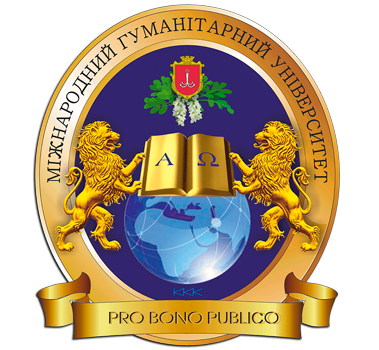ВИКОРИСТАННЯ ОЗОНОТЕРАПІЇ ЯК ДОДАТКОВОЇ ПІДТРИМКИ ПРИ ЛІКУВАННІ ХВОРИХ НА COVID-19 У ВІДДІЛЕННІ ІНТЕНСИВНОЇ ТЕРАПІЇ
DOI:
https://doi.org/10.32782/2411-9164.19.1-10Ключові слова:
озонотерапія, SARS-CoV-2, пандемія, аутогемотерапія, COVID-19Анотація
Вступ і цілі: досі немає конкретних стратегій лікування, окрім підтримуючого лікування величезної кількості летальних випадків пандемії COVID-19. Використання газу озону (O3) як терапії в альтернативній медицині викликало скептицизм через його нестабільну молекулярну структуру. Сьогодні ми можемо твердо стверджувати, що озон здатний модулювати запалення, діючи на «цитокіновий шторм», зменшувати гіпоксію тканин, зменшувати гіперкоагуляцію та порушення реплікації вірусу. Через багато невизначеностей щодо лікування COVID-19 виник великий інтерес до потенційної ролі ад’ювантної озонотерапії, яка може дуже добре доповнювати стандартну терапію COVID-19. Широкий спектр втручань, включаючи противірусні препарати, імуномодулятори, реконвалесцентну плазму та фітотерапію, не були підтверджені як ефективні проти SARS-CoV2. Метою цього дослідження було оцінити вплив озонотерапії на перебіг хворих на COVID-19. Матеріали та методи: проспективне рандомізоване клінічне дослідження типу «випадок-контроль», яке включало 100 пацієнтів з Covid-19 із пневмонією середнього ступеня тяжкості, які були госпіталізовані у відділення інтенсивної терапії в період з липня 2020 року по лютий 2021 року, розділених випадковим чином на дві групи. Дослідницька група з 50 пацієнтів отримувала стандартне лікування та озонову аутогемотерапію (O3-AHT) один раз на день протягом семи днів поспіль. Озонова аутогемотерапія передбачала введення 150 мл аутологічної цільної крові, збагаченої 150 мл киснево-озонової суміші з концентрацією озону 40 мкг/мл. Контрольну групу склали 50 пацієнтів, які отримували стандартне лікування згідно зі стаціонарним протоколом. Були проаналізовані первинні результати (смертність) і вторинні результати (тривалість неінвазивної вентиляції легенів, тривалість перебування у відділенні інтенсивної терапії та госпіталізації, шкала Brixia на 1-й і 7-й день озонотерапії та співвідношення P/F на 1-й і 7-й день озонотерапії). Результати: Смертність у контрольній групі порівняно з групою дослідження становила 34% (ДІ95% 22,1, 47,7) проти 26% (ДІ95% 15,4, 39,3) без статистичної значущості (р = 0,513). Вторинний результат, такий як тривалість перебування у відділенні інтенсивної терапії та лікарні, не показав жодної статистичної значущості серед досліджуваних груп. Співвідношення P/F на 7-й день озонотерапії було вищим у групі дослідження 287 (IQR 150) проти 210 (180,75) зі статистичною значущістю (p=0,007). Оцінка Brixia на 7-й день озонотерапії була нижчою в групі дослідження 8 (IQR-5) проти 9 (IQR – 7) (p=0,037). Висновок: у цьому дослідженні було продемонстровано, що застосування озонотерапії, як додаткова підтримка госпіталізованих пацієнтів з COVID-19, не впливає на смертність. Водночас спостерігався позитивний вплив озону на покращення співвідношення P/F та оцінки Brixia на сьомий день озонотерапії. У нашому дослідженні не було виявлено жодних побічних ефектів, пов’язаних із озонотерапією.
Посилання
IRMS – Nicolae Testemitanu SUMPh: Tratamentele medicamentoase, utilizate în cadrul terapiei intensive a pacienţilor cu SARS-CoV-2: revistă critică de literatură.
Scientific and medical aspects of ozone therapy. State of the art. Bocci VAArch Med Res. 2006 May; 37(4):425-35. [PubMed]), (Ozone therapy: A clinical review. Elvis AM, Ekta JS J Nat Sci Biol Med. 2011 Jan; 2(1):66-70. [PubMed]).
Morrison, C., Atkinson, A., Zamyadi, A., Kibuye, F., Mckie, M., Hogard, S., Mollica, P., Jasim, S., & Wert, E. C. (2020). Critical Review and Research Needs of Ozone Applications Related to Virus Inactivation: Potential Implications for SARS-CoV-2. URL: https://doi.org/10.1080/01919512.2020.1839739.
Şahin Çolak1 | Burcu Genç Yavuz1 | Mürsel Yavuz2 | Burak Özçelik1 | Metin Öner1 | Asu Özgültekin3 | Seniha Şenbayrak. (2021). Effectiveness of ozone therapy in addition to conventional treatment on mortality in patients with COVID-19. URL: https://doi.org/10.1111/ijcp.14321.
Bocci V. Ozone: a new medical drug. 2nd ed. Dordrecht: Springer Verlag; 2011.27.
Eren E, Saribek F, Kayalayci, Yilmaz N. How to cripple SARS- COV-2 virus with Ozone treatment thiol groups in viruses and SARS-COV-2, Traditional and Complementary Medicine, 2020.
B. Bayarri, A. Cruz-Alcalde, N. L´ opez-Vinent, M.M. Mic´ o, C. Sans, Can ozone inactivate SARSCoV-2? A review of mechanisms and performance on viruses, J Hazard Mater. 5 (415) (2021 Aug), 125658. URL: https://doi.org/10.1016/j. jhazmat.2021.125658.
Delgado-Roche L, Riera-Romo M, Mesta F, Hernández-Matos Y, Barrios JM, Martínez-Sánchez G. Medical ozone promotes Nrf2 phosphorylation reducing oxidative stress and proinflammatory cy- tokines in multiple sclerosis patients. Rev Esp Ozonoterapia. 2018;8(2Supp 1):48-9.
Fernández-Cuadros, M. E., María, &, Albaladejo-Florín, J., Peña-Lora, D., Álava-Rabasa, S., & Susana Pérez-Moro, O. (n.d.). Ozone (O3) and SARS-CoV-2: Physiological Bases and Their Therapeutic Possibilities According to COVID-19 Evolutionary Stage. URL: https://doi.org/10.1007/s42399-020-00328-7/Published).
Schwartz A, Martinez-Sánchez G. Uso potencial complementario y compasivo de la ozonoterapia sistemica en el COVI-19. AEPROMO, 2020, In Press.
A., Hernandez, V., Montserrat, A., Pablos, F., Vlas, P., J., Papadokos, D., N., Wijeeysundera, M., Vives. Ozone therapy for patients with SARS-CoV2 pneumonia: a single-center prospective cohort study MedRXiv. doi: https://doi.org/10.1101/2020.06.03.20117994, June 12, 2020.
Franzini, M., Valdenassi, L., Ricevuti, G., Chirumbolo, S., Depfenhart, M., Bertossi, D., & Tirelli, U. (2020). International Immunopharmacology Oxygen-ozone (O 2-O 3) immunoceutical therapy for patients with COVID-19. Preliminary evidence reported. International Immunopharmacology, 88(May), 106879. URL: https://doi.org/10.1016/j.intimp.2020.106879.
Tascini, C., Sermann, G., Pagotto, A., Sozio, E., De Carlo, C., Giacinta, A., Sbrana, F., Ripoli, A., Castaldo, N., Merelli, M., Cadeo, B., Macor, C., & De Monte, · Amato. (2021). Blood ozonization in patients with mild to moderate COVID-19 pneumonia: a single centre experience. Internal and Emergency Medicine, 16, 669–675. URL: https://doi.org/10.1007/s11739-020-02542-6.
Sozio, E., De Monte, A., Sermann, G., Bassi, F., Sacchet, D., Sbrana, F., Ripoli, A., Curcio, F., Fabris, M., Marengo, S., Italiani, D., Luciana Boccalatte-Rosa, D., & Tascini, C. (2021). CORonavirus-19 mild to moderate pneumonia Management with blood Ozonization in patients with Respiratory failure (CORMOR) multicentric prospective randomized clinical trial. International Immunopharmacology, 98 (June). URL: https://doi.org/10.1016/j.intimp.2021.107874.
Shah, M., Captain, J., Vaidya, V., Kulkarni, A., Valsangkar, K., Nair, P. M. K., & Ganu, G. (2021). Safety and efficacy of ozone therapy in mild to moderate COVID-19 patients: A phase 1/11 randomized control trial (SEOT study). International Immunopharmacology, 91, 107301. URL: https://doi.org/10.1016/J.INTIMP.2020.107301.






